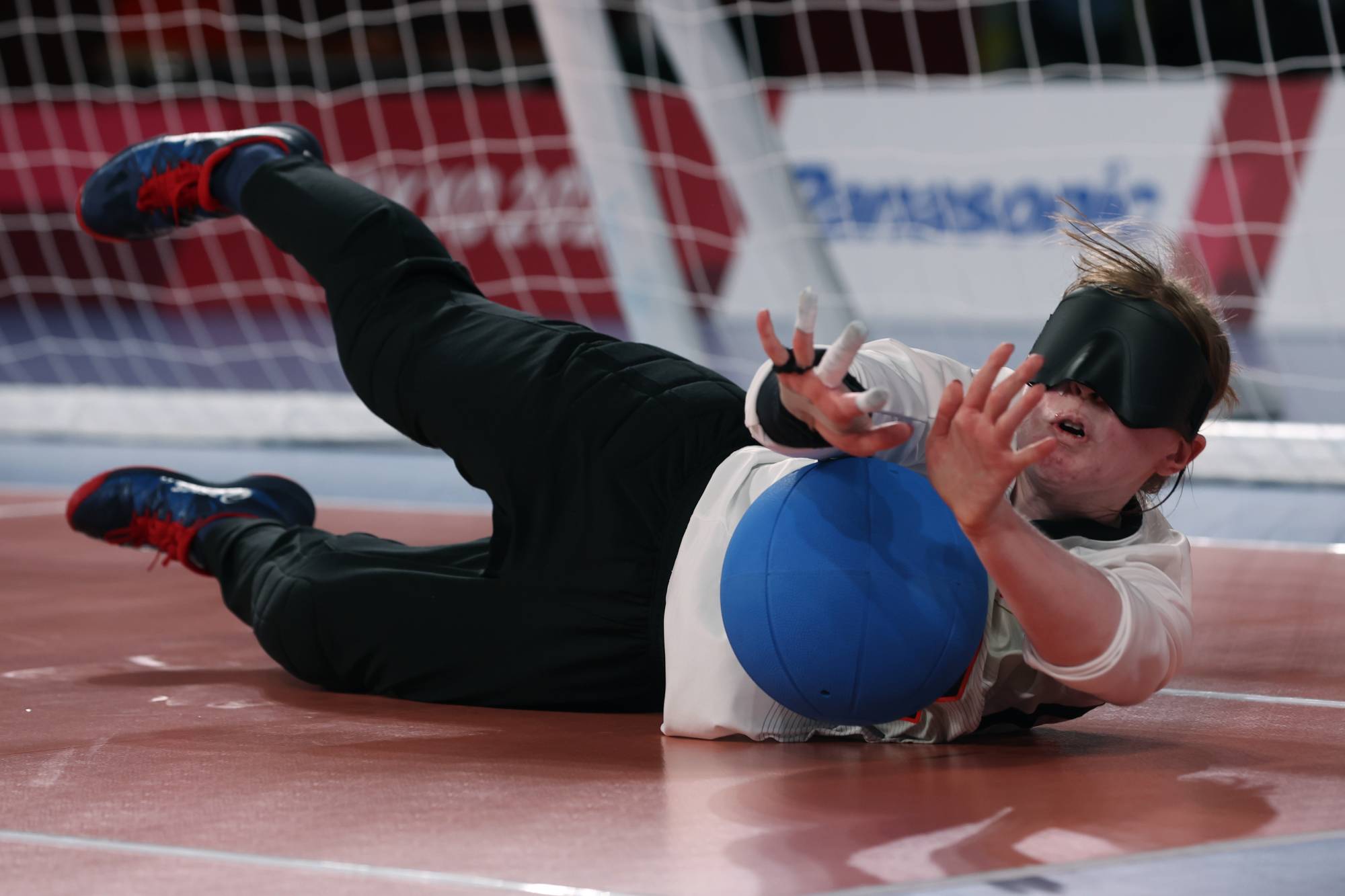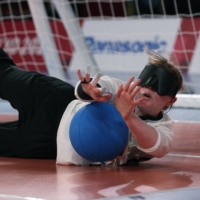Eiko Kakehata carried a secret weapon into the women’s goalball bronze medal match. Well, it wasn’t much of a secret — it was sitting there for all the world to see. The 28-year old tied her back and held it in place with a scrunchie that was mostly blue with a white line running across the bottom and a red bow attached.
She said the accessory, fashioned after one worn by her favorite anime character, Sailor Moon, gave her power. She used that extra strength to help her team end the Paralympics on a high note.
Kakehata scored three goals in the first half and Japan bounced back from a disappointing loss in the semifinals to claim the women’s goalball bronze medal with a 6-1 victory over Brazil during the Tokyo Paralympics at Makuhari Messe on Friday afternoon.
"Yesterday, my tears were because of sadness and frustration," Kakehata said. "Today they are tears of happiness."
The Japanese hugged on the court after the final buzzer and later celebrated with members of Japan’s men’s team.
Norika Hagiwara supplied the rest of the offense. She scored twice on penalty throws in the first half and slipped a ball past the Brazilians to score in the second half.
“Kakehata and Hagiwara both scored goals for us and the rest of the team played hard on defense and that’s how we won,” Japan’s Yuki Temma said.
Hagiwara also stopped a goal. She committed a penalty midway through the second half and was forced to stand in goal alone — there are normally three players defending — as Victoria Amorim prepared to make a throw.
Hagiwara guessed right, following the sound of the ball and diving to make the save.
The 20-year old was playing in her first Paralympics and led Japan with 25 goals while playing 145 minutes across seven games.
“I’m the type who gets nervous easily, and I was so nervous during this tournament,” she said. “I’m still young, but my teammates supported me and cheered for me. I’m just so happy.”
Amorim scored Brazil’s only goal in the second half, but with 2:02 remaining, it was too little, too late.
"Today we couldn't get a medal, but there are only three years until the 2024 Paralympics in Paris, so we (will) continue training toward the next goal," Brazil's Jessica Gomes said.
The Japanese players said their goal was to win gold, but a bronze may still help ease some of the pain of a disappointing finish at the Rio Games in 2016, when the Japanese lost their first game of the knockout round.
Kakehata was part of that squad and is also one of four players remaining from the team that won the gold medal during the 2012 London Paralympics. Temma, Rie Urata and Haruka Wakasugi were also on that team, but a second gold for that quartet was not in the cards after Japan allowed eight goals against Turkey on Thursday.
"We lost yesterday and I was disappointed and I sort of have mixed feelings," Kakehata said. "But we changed our mindset and went for the bronze medal and we all did what we needed to do."
Following the loss against Turkey, Hagiwara said the team would analyze the data and figure out what it needed to improve. Japan went into Friday’s match with a plan to aim for just either side of the center with many of their throws in hopes of the ball bouncing off the Brazilians’ fingers or feet and into the net.
Japan also wanted to score first, which it did when Kakehata fired a throw just off-center that found the back of the net 10 minutes into the game.
It was all Japan from that point.
Kakehata scored again to make it 2-0 and Hagiwara’s penalty throws increased the lead to four. Kakehata added Japan’s fifth with 39 seconds left in the half.
“We were not able to really play the way we usually do yesterday,” Kakehata said. “So today, we wanted to play our kind of game and we wanted to get the medal."




